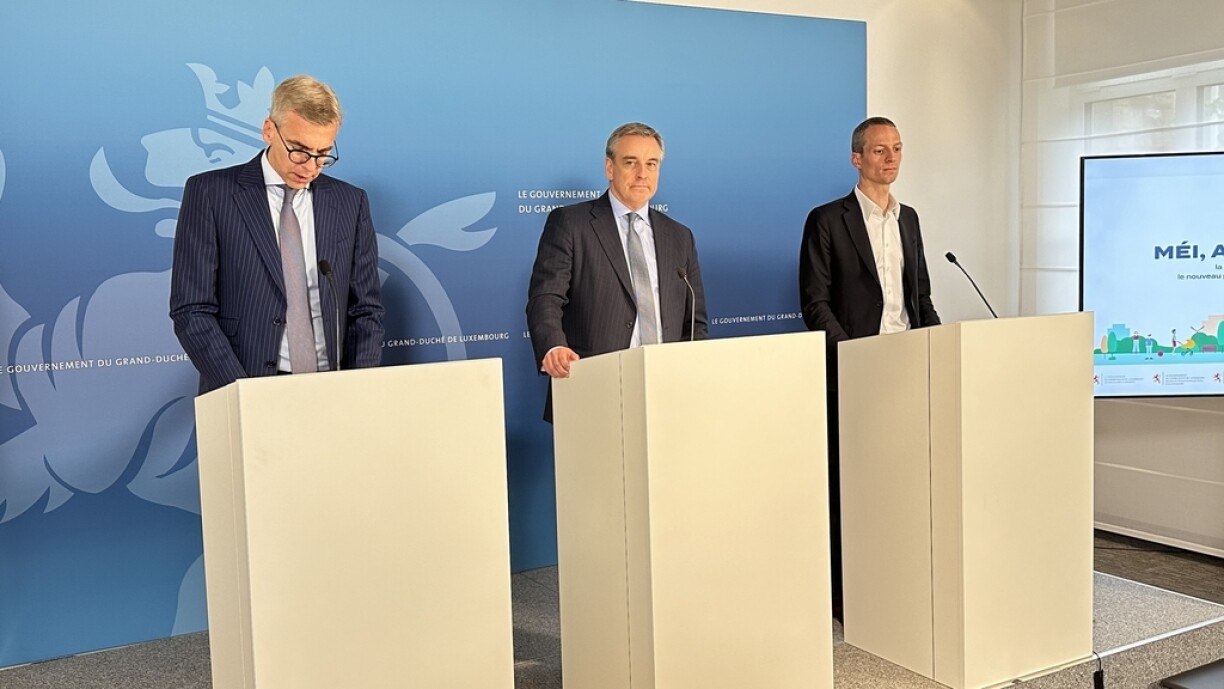
On Wednesday, Ministers Léon Gloden, Claude Meisch, and Serge Wilmes presented a new 10-point action plan to reduce administrative procedures, as announced in the State of the Nation speech given by Prime Minister Luc Frieden at the beginning of June.
Municipal regulations and urban planning standards are thus set to be harmonised, reducing the number of contacts and introducing shorter waiting periods. The government also plans to increase its affordable housing offer, as well as experiment with pilot projects within the private sector.
The CSV-DP government hopes the measures will stimulate housing construction while also reducing procedural errors, said Home Affairs Minister Gloden. Currently, there are around a hundred individual municipal building regulations, which is why the government will seek to introduce a national standard regulation.
However, municipalities will not have to implement it fully due to specific aspects. In addition, the individual points of contact will be reduced and combined with the standards.
Environment Minister Wilmes detailed a number of measures hoped to implement the new “nature in time” philosophy. An example of one of these measures is that if hedges are added to a construction site, they will no longer automatically receive environmental protections. Currently, many owners tend to regularly mow their land, doing nothing to encourage biodiversity, lamented Wilmes. The minister went on to say the lands will not be fully sealed off, but that greenery should be encouraged to remain.
In order to build more affordable housing, existing measures such as the Housing Pact with municipalities, social housing agency, and other shareholders will continue to be maintained. Housing Minister Meisch said they hoped to expand this further in the form of pilot projects with the private sector.
One of these projects might see the government renting instead of buying from private developers. The government is also eyeing amendments to the law on municipal planning and urban development as they seek to lower regulations on the size of affordable properties, enabling developers to create significantly more housing.
The ministers said municipal autonomy will remain, particularly regarding the quantity and density of construction. Gloden said a general development plan, known as PAG, will only have to be passed twice by a municipal council, rather than three times, and any citizens’ objections will now be accommodated by a central national body. This will take off pressure from municipal councils and open up new dialogues, according to Gloden.
The interior minister also confirmed that the government will maintain a number of projects introduced by their predecessors, such as the property tax reform and the mobilisation tax, as well as a ministerial re-parcelling mechanism, although the “building land contract” is no longer on the agenda. However, the measures will need to be reworked, taking the Council of State’s advice into consideration, noted Gloden.
Officials ended the briefing by underlining that everything summarised on Wednesday will represent a challenge for different departments and the municipalities, and it also presupposes a number of legislative changes or new bills. Some of these are likely to be introduced this year, while others will be shuffled back to 2025, they concluded.